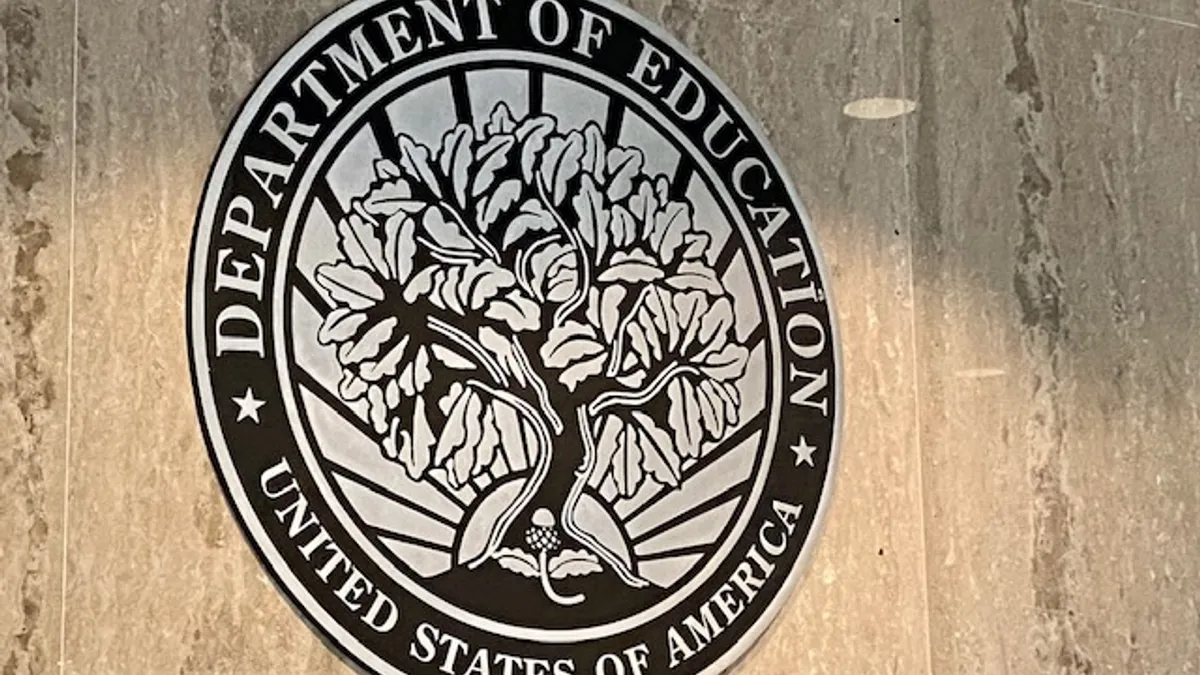Montana will replace its existing statewide, federally mandated annual assessment with a through-year assessment beginning in the 2024-25 school year.
The U.S. Department of Education gave the state the green light to field test the redesigned assessment in reading/language arts and math for grades 3-8 in the 2023-24 school year in a letter sent to the state Thursday. The state will be allowed to offer participating field test schools a waiver from some federal assessment and accountability requirements for the coming school year.
"This one-year waiver will encourage more Montana schools to participate in an innovative field test that will provide more timely, actionable information on student progress to parents, educators and the public, while continuing to hold Montana’s students to rigorous academic standards," said U.S. Secretary of Education Miguel Cardona in a statement on Thursday.
The approval comes with the following stipulations for assessment, reporting and accountability:
- Students with the most significant cognitive disabilities in the participating schools will continue to take the existing alternative assessment.
- Districts and the state will still be required to report on achievement for students with the most significant cognitive disabilities who will continue to take the existing alternate assessment.
- The statewide science assessment will continue to be administered as is.
- Districts will not be required to provide results for student performance on the innovative assessment field test in 2023-24.
- The state will maintain annual report cards with all other data for schools participating in the field test other than achievement level data, such as the number of English learners achieving English language proficiency.
- Parents of students participating in the field test will still receive raw score reports for each of the multiple tests.
- The state will report participation rates for both the field and existing exam, disaggregated by student group.
- Any school that participates in the 2023-24 field test will be exempt from accountability systems and identification for targeted support and improvement for that year.
- Existing school improvement designations will continue during the field test year, which means participating schools may not exit their improvement status. Districts and the state will continue to provide assistance and oversight of identified schools in the 2024-25 school year.
- Districts and the state would be exempt from many local report card requirements, including: reading/language arts and math achievement data, student growth data based on academic assessments, and progress on long-term academic achievement progress.
- Montana will continue to meet assessment, reporting and accountability requirements for non-field test schools in 2023-24.
The Education Department's approval to waive federal requirements for schools participating in an assessment field test is one of the first.
"With rare exceptions, the Department has not waived assessment, accountability, and reporting requirements to permit a State to conduct a field test of a new assessment," said Adam Schott, deputy assistant secretary for policy and programs at the U.S. Department of Education's Office of Elementary and Secondary Education, in his letter to Montana Superintendent of Public Instruction Elsie Arntzen.
However, Schott said Montana's request was approved because the transition to the new assessment model will take one year and will provide educators "with more frequent and timely feedback on their instruction."
Schott added "we have determined that this waiver will advance student academic achievement, especially in the context of the urgent work of academic recovery post-pandemic."
The pandemic prompted assessment experts to predict that building closures and their impact on academics would shift how high-stakes tests are viewed and administered. Since then — and in light of pandemic-induced academic lags — through-year assessments have increasingly emerged as an alternative to end-of-year exams because of the quicker turnaround time for results and greater ability to inform educators of student progress.
Earlier this year, Florida announced it would eliminate its multi-day end-of-year assessments to replace them with through-year assessments. The "progress monitoring system" was meant to be shorter, more individualized and provide more feedback for students, teachers and parents, said Gov. Ron DeSantis when signing the legislation in March.
Though Florida made that shift for the 2023-24 school year, it was still required to meet federal standards, which have been waived in Montana's case.
In January, Oregon also requested that the Education Department waive some federal requirements to allow a redesign that would shorten its state assessments. However, the department denied that request in May. The department also threatened to withhold federal funds from Maine in February after it failed to meet federal standards following a shift to through-year assessments in 2022.
It's likely that many other states are also looking to shift their current assessment systems to more innovative approaches.
According to the Data Quality Campaign, a nonprofit organization that advocates for high-quality data, at least 11 states had begun to transition to through-year assessments as of May 2022, including: Alaska, Florida, Georgia, Kansas, Louisiana, Maine, Montana, Nebraska, North Carolina, Texas and Virginia.
Some of the feedback has been positive. In Louisiana, 77% of teachers identified the new assessments as "a better measure of student performance" than the old assessment, according to the organization.
In Georgia, Clayton County Public Schools' former psychometrician Michael Tappler lauded the through-year assessment model in January 2020 as a way to reduce overall testing, eliminate the annual summative test, and still provide better growth and proficiency information throughout the school year.
States' decisions to make the shift to a new model also come in light of urging from the federal government to rethink how students are tested and how their scores are reported.
In 2022, the Education Department urged states to develop assessment systems that use multiple measures of academic achievement and follow a competency-based model.
Cardona's predecessor, Betsy DeVos, similarly urged states in 2020 to pursue different models, calling it the "perfect time" to innovate assessments after COVID-19 triggered waivers from federal requirements.
In a statement, Carissa Miller, CEO of the Council of Chief State School Officers, said the organization will look to Montana as other states also take steps to innovate.
"CCSSO looks forward to learning from the work in Montana over the next year and supporting other states as they explore strategies to modernize their education systems," said Miller.




















